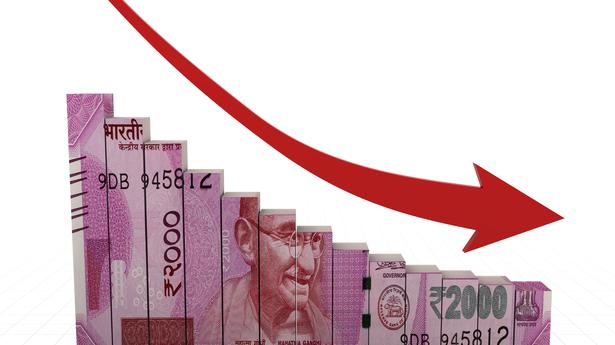Think before you hit – The Hindu
Credit cards offer several advantages. However, they can also cause great financial burdens if used carelessly
Credit cards offer several advantages. However, they can also cause great financial burdens if used carelessly
Sachin Vasudeva
A credit card offers several advantages in the form of increased purchasing power and interest-free periods and usage bonuses.
However, it can also lead to great financial strain, mainly due to financial indiscipline or simple lack of awareness.
Here are the seven most common mistakes you can make when using your credit card.
Lack of timely payments
While credit cards offer you greater purchasing power, they are also responsible for paying off the outstanding balances on time. A lack of discipline in paying off your outstanding card bill on time can be perhaps the greatest folly of using a card.
Not only would you be hit with high late payment fees and financing fees, but regularly missing your payment can severely damage your credit score. Non-payment and even late payment of your credit card bill will be reflected on your credit report, which can also negatively impact your chances of getting a loan or credit card in the future.
If you miss paying your credit card bill, you’ll eventually lose the interest-free period, as all new transactions will incur financing fees from day one until you settle your outstanding fees.
Therefore, it’s important that you not only make sure you pay your credit card bills on time, but also have the discipline to only spend what can be paid back in full on time.
‘minimum fee’ pifall
In addition to the “Total Amount Due” card issuers also offer the option to pay the “Minimum Amount Due” on or before the due date to keep the card active and avoid late payment fees. This minimum amount due is a small fraction of the total amount due, typically around 5%. However, if only the minimum amount due is paid, the unpaid balance on the card begins with financing fees, which can be as high as 40% per year on some cards
If you roll over the balance to the next billing cycle, funding fees will also apply to new transactions until you clear all outstanding balance. This can quickly add to your debt burden.
ATM withdrawal
While withdrawing cash from an ATM using your credit card may seem like a simple solution to your cash needs, it is one of the most expensive forms of borrowing. It attracts three types of charges.
First and foremost is the cash advance fee, which is typically around 3.5% of the amount withdrawn. Secondly, there are financing fees on the withdrawn cash, which can amount to up to 40% pa. And third, any new transactions made through the credit card after you’ve withdrawn cash also incur financing fees from day one.
This means that as soon as you have withdrawn cash with your credit card, you can no longer use the interest-free period for your new transactions until the cash advance is repaid. While the cash advance fee is a one-time fee, financing fees are charged daily until the amount is paid off in full.
If you withdraw cash and don’t pay it back quickly, you can end up paying a sizable sum in financing costs. Therefore, cash advances on credit cards should always be considered as a last resort. A personal loan or credit card loan may be a better alternative to meet financial needs.
Hard limit
If you regularly exhaust the entire credit limit available to you, it can negatively affect your credit score as your credit utilization ratio (CUR) becomes extremely high. The CUR is a percentage of your total available limit that you are currently using.
If your CUR is high, especially if you frequently approach or exceed your credit card credit limit, you will be perceived as a credit dependent, which can negatively impact your credit score. If you regularly max out your credit card, you can apply for additional credit cards or ask your card issuer to increase your credit limit.
Interest-free period
One of the most important features of a credit card is the interest-free period. It is the period between the date of purchase and the payment due date.
If you pay all of your fees on time, transactions made during this period will not incur financing fees. Transactions made at the beginning of your billing cycle are eligible for an extended interest-free period. If you have multiple credit cards with different billing cycles, you should spread your purchases across these cards in a way that maximizes the interest-free period, especially for large transactions.
Making quality purchases early in your cycle gives you more time to pay them off.
limit increase
A low credit limit on your credit card can be a major disadvantage as it restricts your purchases even if you have sufficient repayment capacity. This also limits your chances of earning higher rewards by spending more, pushing you towards a higher CUR. On the other hand, a higher limit, if used judiciously, can be very useful.
It comes in handy in emergencies and gives you greater purchasing power to make the most of offers and discounts during sale periods. The increased limit also lowers your overall credit utilization, which can have a positive impact on your credit score.
Expiration of Reward Points
Most credit cards have a rewards points program where cardholders earn rewards points and the points earned can be redeemed for gift certificates, merchandise, or bank statements.
However, reward points have an expiration date, typically 2-3 years from the date they were earned. Your monthly credit card statement details the points that expire that month. It’s important to keep track of Reward Points expiration so you don’t miss out on this benefit.
(The author is Associate Director & Business Head (Maps), Paisabazaar.com)


Comments are closed.